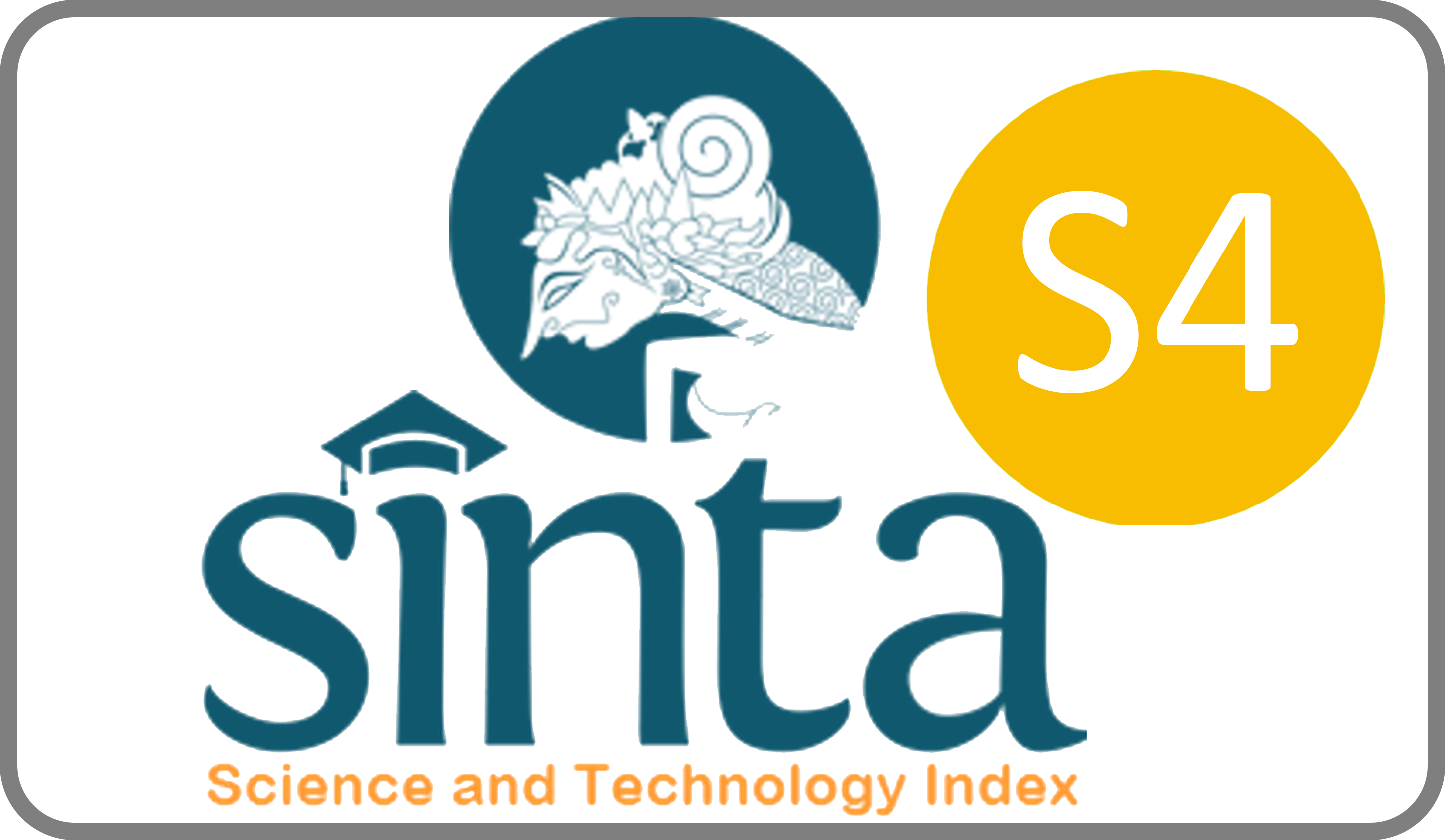UNDERSTANDING THE STRUCTURE OF SCIENTIFIC WORK: BASIC TRAINING IN SCIENTIFIC JOURNAL WRITING TECHNIQUES FOR GRADUATE LEVEL STUDENTS
Downloads
Basic training in scientific journal writing techniques is an important activity for undergraduate students in understanding the structure of scientific work. This research aims to investigate the impact of this training on improving students' writing skills. The training duration is one day with a total of 3 hours of intensive training. The number of participants involved in this research were 30 undergraduate students from various study programs. The training includes material on the structure of scientific work, effective writing techniques, and the correct use of references. After the training, participants are evaluated through a writing test to measure the improvement of their writing skills. Evaluation results showed significant improvements in participants' ability to organize information, construct coherent arguments, and cite references correctly. This training proves that with a good understanding of the structure of scientific papers and proper writing techniques, undergraduate students can improve their writing skills significantly. The implication of this research is the importance of providing scientific journal writing training to students to prepare them to face academic and professional demands in the future.
Bambang Suprianto, & Abdurrahman Arif. (2023). Menuju Ruang Publik : Pelatihan Penulisan Opini bagi Mahasiswa. Sejahtera: Jurnal Inspirasi Mengabdi Untuk Negeri, 2(3), 171–176. https://doi.org/10.58192/sejahtera.v2i3.1114
Budi, S., Gamayanto, I., Widjajanto, B., Suharnawi, & Wahid Kurniawan, A. (2023). TRAINING ON THE DEVELOPMENT OF RESEARCH CENTRE AT SMAN 3 SEMARANG. Jurnal Layanan Masyarakat (Journal of Public Services), 7(4), 503–513. https://doi.org/10.20473/jlm.v7i4.2023.503-513
Davydova, M., Divinagracia, L. M., Ng, K., & Bradley, N. (2024). Student perspectives on peer education using a virtual platform to enhance advanced pharmacy practice experiences (APPE). Pharmacy Education, 24(1), 48–53. https://doi.org/10.46542/pe.2024.241.4853
Gao, F., Fenoaltea, E. M., Zhang, P., & Zeng, A. (2024). A reviewer-reputation ranking algorithm to identify high-quality papers during the review process. Expert Systems with Applications, 249, 123551. https://doi.org/10.1016/j.eswa.2024.123551
Harianto, Y. A. (2021). Penulisan Artikel Dakwah Berbasis. INTELEKSIA-Jurnal Pengembangan Ilmu Dakwah, 04(01), 51–70.
Hung, C.-T., Wu, S.-E., Chen, Y.-H., Soong, C.-Y., Chiang, C., & Wang, W. (2024). The evaluation of synchronous and asynchronous online learning: student experience, learning outcomes, and cognitive load. BMC Medical Education, 24(1), 326. https://doi.org/10.1186/s12909-024-05311-7
Karomah, B., & Rukmana, R. M. (2022). Pelatihan Penulisan Artikel Ilmiah untuk Meningkatkan Profesionalisme Mahasiswa dalam Menyusun Artikel Ilmiah dan Publikasi di Jurnal Nasional Terakreditasi Sinta.
Khusyairi, J. A., Dwi Riyanto, E., Afdholi, N., Nur Dian Rosyida, U., Sakti Nur Cahyo, P., Meyrasyawati, D., & Kajian Sastra dan Budaya, M. (2024). Open acces under CC BY-SA license Creative CommonsAttribution-ShareAlike 4.0 International License 52 TRAINING ON TEMPLATE-BASED WRITING OF SCIENTIFIC ARTICLES FOR ENGLISH TEACHERS IN KEDIRI AND BANYUWANGI. Journal of Public Services), 8(1), 52–060. https://doi.org/10.20473/jlm.v8i1.2024.052-060
Meutia, T., Harefa, J. A., Wijayanti, S., & Saragi, M. P. D. (2022). Efektifitas Konseling Kelompok untuk Meningkatkan Rasa Percaya Diri dalam Kemampuan Public Speaking Mahasiswa. Jurnal Pendidikan Dan Konseling, 4(3), 2215–2219.
Prakoso, A. R., Seriardana, P., & Adnyani, L. D. S. (2021). Implementasi Genre Based Approach untuk Meningkatkan Keterampilan Menulis Explanation Text. Indonesian Gender and Society Journal, 2(1), 1–9. https://doi.org/10.23887/igsj.v2i1.39206
Rosadi, A., Nur, R. A., Ridwan, D., & Apriandinata, I. (2022). Pelatihan Penulisan dan Publikasi Artikel Pengabdian Kepada Masyarakat Pada Mahasiswa. Jurnal Pengabdian Kepada Masyarakat Nusantara, 3(1), 125–130. https://doi.org/10.55338/jpkmn.v3i1.297
Sayama, G. (2024). Verification of the effectiveness of vocabulary learning strategies using Russian word formation based on empirical research. Russian Linguistics, 48(1), 8. https://doi.org/10.1007/s11185-024-09292-5
Sofiyat, A. I., Tjalla, A., Sarifah, I., & Jakarta, U. N. (2023). Penalaran Statistika Mahasiswa Pai Universitas Islam As-syafi’iyah. Jurnal Unj, 1(1), 12–18.
Suhendra, S., & Suprianto, B. (2023). Implementasi Kurikulum Merdeka Belajar Kampus Merdeka di Perguruan Tinggi: Implementasi dan Dampaknya Terhadap Pembelajaran Mahasiswa. Indo-MathEdu Intellectuals Journal, 4(3), 1556–1567. https://doi.org/10.54373/imeij.v4i3.353
Widawati, R. R. (2022). Penerapan Strategi Pemodelan dalam Meningkatkan Keterampilan Menulis Esai. Ideguru: Jurnal Karya Ilmiah Guru, 8(1), 48–57. https://doi.org/10.51169/ideguru.v8i1.407
Zhou, Y., Gao, H., Wang, Q., Zhi, J., Liu, Q., Xia, W., Duan, Q., & Yang, D. (2024). Impact of simulation-based training on bougie-assisted cricothyrotomy technique: a quasi-experimental study. BMC Medical Education, 24(1), 356. https://doi.org/10.1186/s12909-024-05285-6.
Copyright (c) 2024 Bambang Suprianto, Suhendra suhendra

This work is licensed under a Creative Commons Attribution-ShareAlike 4.0 International License.
JLM by Unair is licensed under a Creative Commons Attribution-ShareAlike 4.0 International License.
1. The journal allows the author to hold the copyright of the article without restrictions.
2. The journal allows the author(s) to retain publishing rights without restrictions
3. The legal formal aspect of journal publication accessibility refers to Creative Commons Attribution Share-Alike (CC BY-SA).
4. The Creative Commons Attribution Share-Alike (CC BY-SA) license allows re-distribution and re-use of a licensed work on the conditions that the creator is appropriately credited and that any derivative work is made available under "the same, similar or a compatible license”. Other than the conditions mentioned above, the editorial board is not responsible for copyright violation.


















